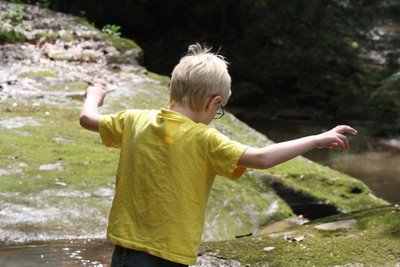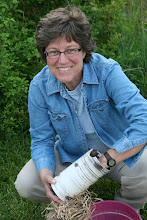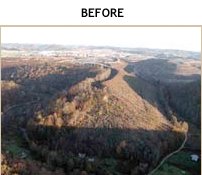
Mountaintop removal mining is a huge thing, of enormous scale and destructiveness. It's a permanent blight upon the land. There can be no mitigation for removing a mountain and filling a valley with poisonous waste. What hubris could be greater than to take a mountain down for profit and leave it gutted, blasted and baked; to leave the streams buried and the communities below poisoned and without drinkable water? To promise jobs and then yank them away when the project is finished and the mountain is destroyed? Git-r-now. Or somebody else will.
It was a great struggle for me to speak about MTR in my keynote for the New River Birding and Nature Festival, and it has been a struggle for me to wind up to speak of it here. To me, it's an obscenity, and I did not want to defile this web log--which I fight to keep a celebration of what's good and right in this world-- by speaking of it. Nor did I particularly want to rail against it in my keynote talk, which was ostensibly about the biology of migration in warblers, at a festival, no less. Aren't festivals supposed to be fun? But the insult to our forests and birds and water and people is so great, so outrageous, so devastatingly permanent, that I had to say something. It seemed so ridiculous to be leading a field trip, pointing out cerulean warblers, with this going on all around us.
.

photo of a furious cerulean warbler by Brandon Holden, Surfbirds.com
Cerulean warblers are going extinct, thanks to this practice, pressure on the wintering grounds, and this administration's unbelievably arrogant, self-serving, hugely protracted and wholly illegal freeze on adding any more species to the Endangered list. There are species that have been waiting 15 years to be listed. Oh. I almost forgot. The administration, with much hoopla and self-congratulation, just added the big, sexy polar bear, while denying that global warming might have anything to do with the fact that its pack ice habitat is melting out from under it. Huzzah. Who cares about little blue birds?
So it's May, 2008, and I'm standing there, pointing this endangered sky-blue warbler out to happy festivalgoers on the slopes of a beautiful forested mountain that, this time next year, will likely be gone. I did that in two places, two mountains covered with mature mesic deciduous forest like Sugar Tree, that are slated for destruction. Do you think that bothers me? It feels like fiddling on the listing deck of the Titanic.
.
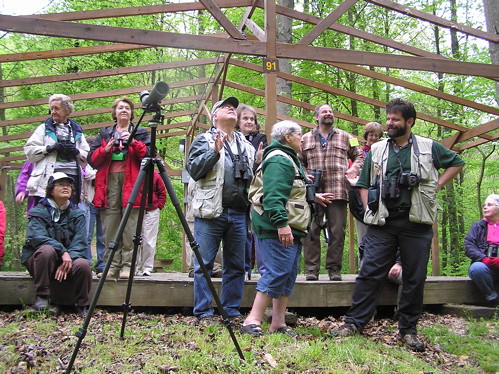
I want you to know that this is going on all over Appalachia. I want you to know what people are talking about when they mention mountaintop removal mining. Even the name is so sanitized, so clinical. It should be called Blasted Earth Mining, or Habitat Destruction Mining, or Community Devastation Mining. It should be called off. And I'd suggest that our president, and the president of Powellton Coal Company, and the Director of the WVDEP, while we're at it, should have to live in Ansted or Gauley Bridge, little communities beneath mountains that are being taken down, where he'd have to drink bottled water, watch his neighbors fall two by two to cancer, and listen at night to the rain pounding on the roof, and wait for a flash flood to take his little house by the poisoned creek clean away.
It is the business of the coal companies to operate where they will meet little resistance. It is part of their plan. Just like the huge chemical companies, that have all situated their plants along the Ohio River in Washington County, where I live, they're counting on us hillbillies to be too ignorant and compliant to complain. They belch their toxic, fetid waste out in the wee hours of the morning, leaving a sickly brown stain on the sky for 360 degrees around, leaving our cancer rate astronomical and growing every day, and the Ohio EPA nods and takes our calls of complaint and nods and smiles again. Thank you for your call. We're working on, (er, with) it. You may be assured we'll keep your views in mind.
That's why Washington County is the second dirtiest county in Ohio. There's been a judgement made about us, and that judgement is that we're too backward to stop them. Back to West Virginia: You aren't going to see mountaintop removal in the Catskills or the Adirondacks, and you're not going to see a filthy chemical plant belching smut into the skies along the lower Connecticut River. These things don't happen where there's money. These things happen where the corporations can wave their JOBS banner and dazzle us all with the hope of being able to pay for our gas to get to work. It's not a deal we should accept, but we do, we do.
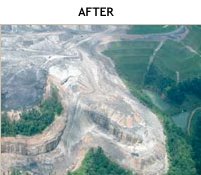
Yes, I love nature and every single wonder she grants us, every moment of grace, every perfect petal, leaf, and feather. But the other side of a love that great is caring a whole lot about it, and that sparks a kind of fury. And so I'm telling you this. In the next posts I want to show you just a few of the things we lose when the U.S. Army Corps of Engineers and the State of West Virginia make a few strokes of their pens, smile and nod, and let them take the mountains down.
For a spectacularly thorough discussion of mountaintop removal mining--how it could be allowed to happen, why it keeps happening, and what it does to all of us-- with links to myriad organizations dedicated to fighting MTR, please see the inaugural post of
Arms Around the Planet.
Labels: Army Corps of Engineers, how it all works, mountaintop removal mining, Ohio River, Washington County Ohio, WVDEP

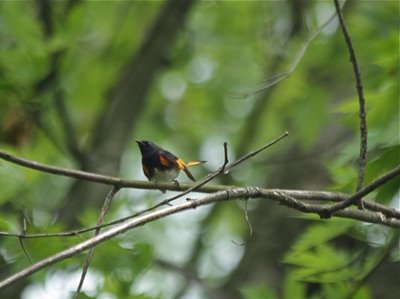 American redstart
American redstart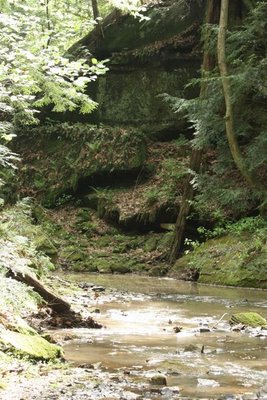 State nature preserves, as opposed to parks, have minimal development and minimal facilities. Only low-impact use is permitted. The whole idea is to maintain the area in as natural a state as possible. Thanks to Debbie Woischke of Ohio Dept. of Natural Resources for the information. You can find more about Boord SNP here.
State nature preserves, as opposed to parks, have minimal development and minimal facilities. Only low-impact use is permitted. The whole idea is to maintain the area in as natural a state as possible. Thanks to Debbie Woischke of Ohio Dept. of Natural Resources for the information. You can find more about Boord SNP here. 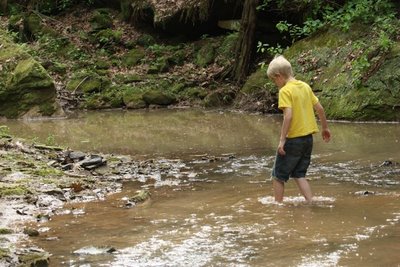
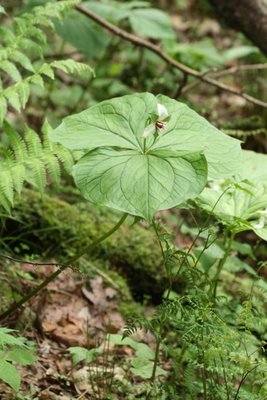 See how the flower looks down? I like the name whip-poor-will flower for it, though I don't know why it should be called that.
See how the flower looks down? I like the name whip-poor-will flower for it, though I don't know why it should be called that.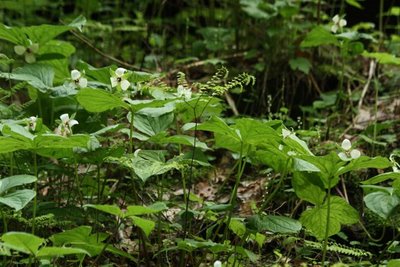
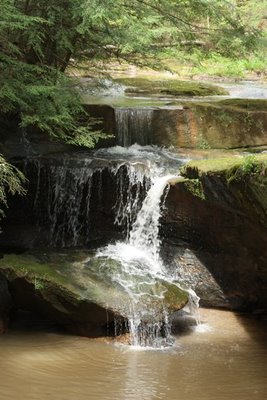 and my kids felt for things with their bare toes
and my kids felt for things with their bare toes